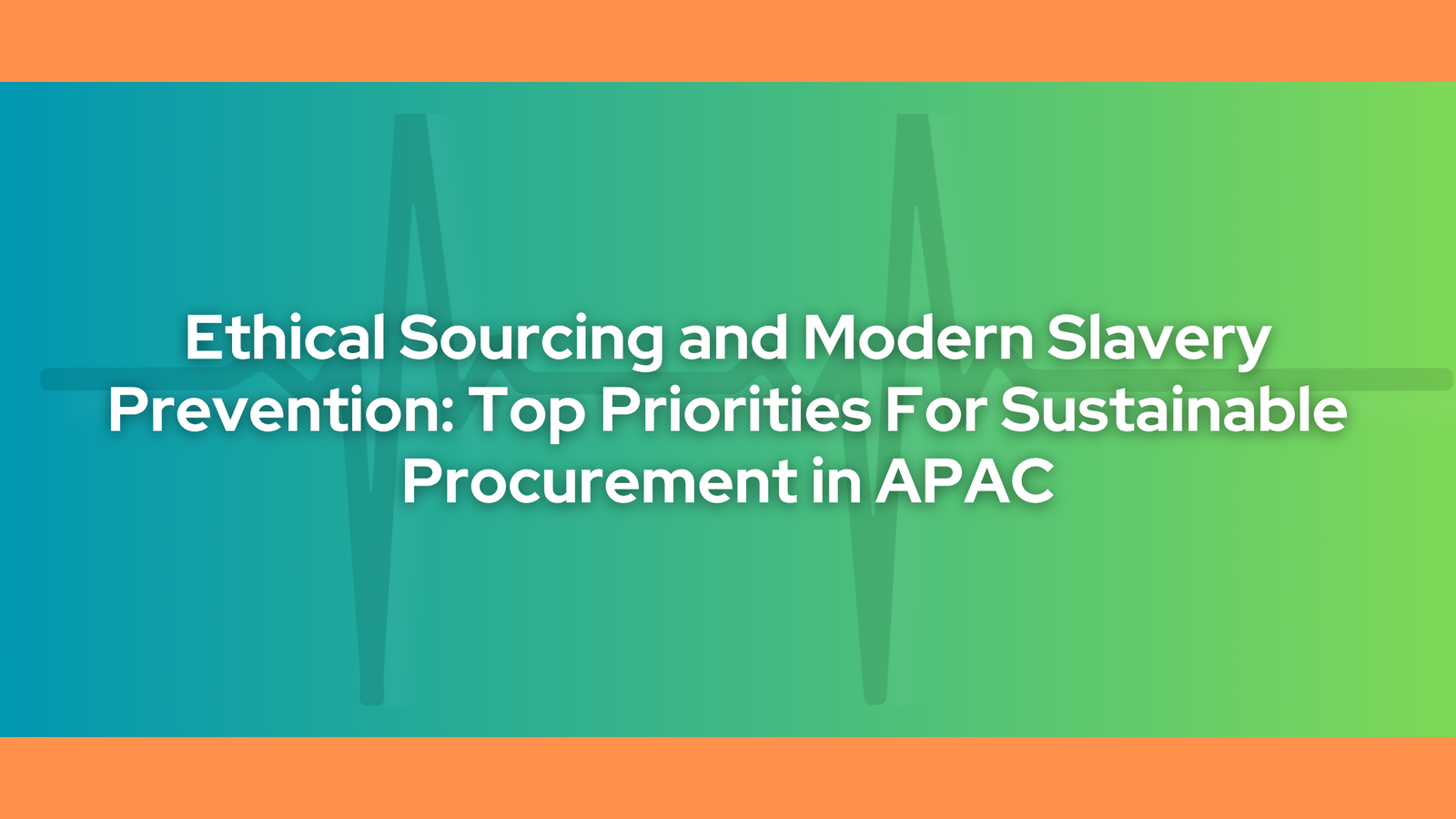
Even though slavery might be thought of as a thing of the past, modern slavery is a problem that still persists in different industries. It is ubiquitous in the Asia-Pacific (APAC) area, where low-cost labor is essential to sectors including electronics, manufacturing, and agriculture. Procurement professionals in APAC must learn how to navigate ethical sourcing and modern slavery. It is not just a moral imperative but also a necessity for businesses and organizations to comply with evolving regulatory frameworks.
By enacting stronger legislation and requiring greater openness, governments and organizations are stepping up their efforts to end modern slavery. Investors also acknowledged the financial risks, reputational challenges, and disruptions in their supply chains if they fail to conduct proper diligence. Using technology and best practices can also help procurement professionals reduce the risks associated with unethical labor practices as they traverse these difficulties.

In a report from the Hinrich Foundation, the International Labour Organization (ILO) estimates that modern slavery ensnares over 50 million people worldwide. Aside from that sad reality, those who engage in it make over $236 billion a year. Add to that the fact that 82% of the victims are in private-sector supply chains and that they continue to exist despite international agreements and legal prohibitions. This just underscores the difficulties and complexities involved in ending modern slavery.
Out of the 50 million victims of modern slavery, APAC has 29.3 million individuals living in that unfortunate circumstance, according to Walk Free. With an estimated 15 million people engaged in forced labor, which is 60% of global forced labor cases, the region is home to the highest number of victims of modern slavery. Among these are state-imposed forced labor in China, North Korea, and other nations; hereditary types of bonded labor in South Asia; and debt bondage among migrants exploited within the region.
While the APAC region is a crucial player in global trade, its supply chains are especially vulnerable to human rights violations. Because exploitative labor practices are common in industries including construction, seafood processing, and textile production, procurement teams must put strict control procedures in place.

A common denominator in these procedures is transparency. Businesses have a moral and legal duty to pursue ethical sourcing and supply chain transparency. Since supply chains often run complexly and across multiple regions of the world, it is easy to hide and bury labor violations.
Businesses can use blockchain technology to provide a safe and transparent record of the whole supply chain—from raw materials to final goods—to guarantee responsibility and confirm ethical sourcing. They can also utilize AI for real-time monitoring of supplier activities, detect possible ethical risks, and raise compliance problems before they get out of hand.
Procurement experts should take a multifaceted approach that guarantees ethical labor standards and supply chain integrity to effectively combat modern slavery. Implementing supplier audits by conducting regular evaluations can verify ethical labor standards.
Furthermore, encouraging supplier collaboration enables companies to create ethical labor practices and offer the required training. Procurement experts may significantly contribute to the elimination of modern slavery and forced labor while enhancing the sustainability and resilience of the supply chain by incorporating these tactics.
Ethical sourcing and modern slavery prevention must be the top priorities for procurement strategies in the APAC region. Businesses that do not prioritize ethical procurement run the danger of suffering financial and reputational damage as a result of increased consumer demands for transparency and government laws. In addition to being efficient, procurement teams may create ethical and sustainable supply chains by utilizing technology, carrying out extensive due diligence, and following best practices.
Procurement professionals in the APAC region have a rare chance to influence significant change across industries in the battle against modern slavery. It is imperative to take immediate action to guarantee that all supply chain links respect human rights and moral labor practices.